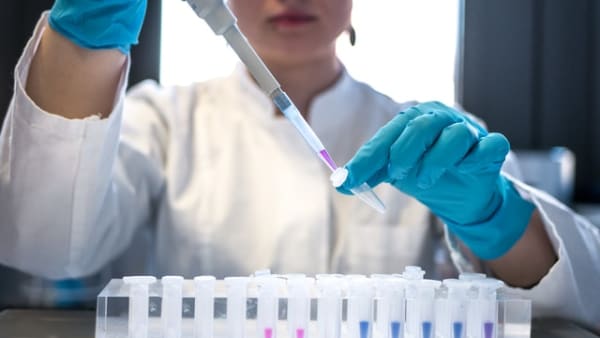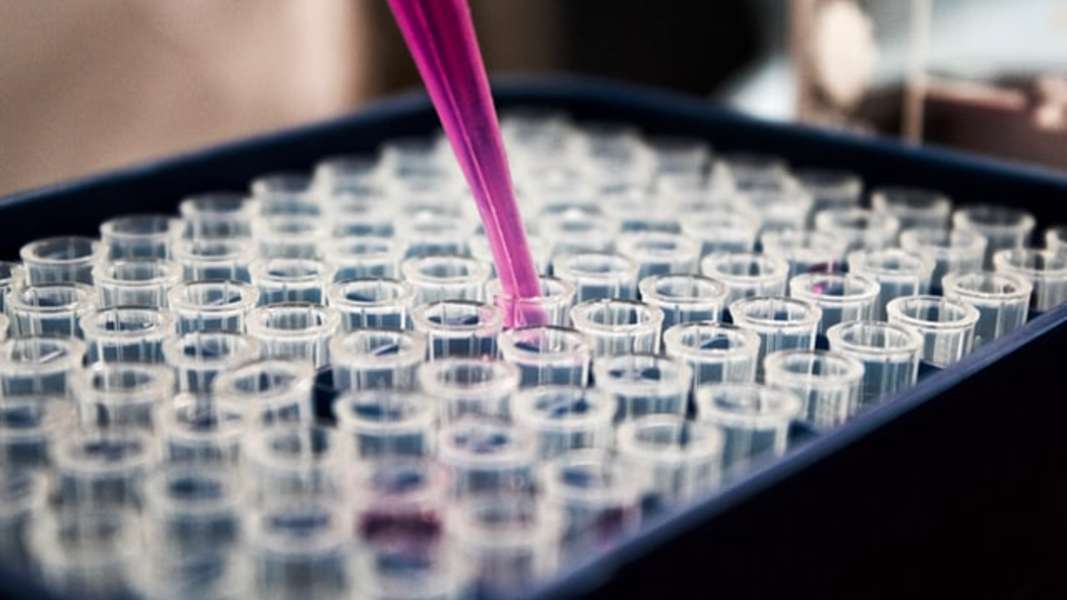
How To Hire A Lab Technician
June 09, 2022

A lab technician is an individual who works in a medical or scientific laboratory performing routine testing for diagnostic purposes. Lab technicians can specialise in various areas of diagnostics, conducting specific tests to diagnose different medical conditions or conducting tests for scientific purposes.
Working under the guidance and supervision of a laboratory technologist or laboratory manager, the work carried out by lab technicians provides results that inform the appropriate treatment paths or the diagnosis of a medical condition.
This article explores the work of a lab technician, identifies their tasks, and the necessary skills and abilities needed to perform the role successfully. You will also learn more about the different types of assessments used during the recruitment process to help you shortlist your candidate pool to the most suitable candidates, leading to the best hires for the positions you have to fill.
What should a lab technician be able to do?
The critical tasks of a lab technician are to perform relevant diagnostic tests to identify any anomalies in samples or specimens.
To do this, lab technicians may first be involved in collecting samples from patients, such as blood, tissue or urine samples, ensuring that their collection is within the parameters necessary for the relevant diagnostic test.
Lab technicians then perform the appropriate tests by preparing volumetric solutions or combining samples with reagents, enabling the test to be performed according to standardized operating procedures.
Other tasks include conducting chemical analysis of specimens, for example, using a microscope to detect any anomalies.
Lab technicians are also required to input their findings into the lab's computer system, analyse and record their data and, if appropriate, interpret their results to share with others using a suitable format such as charts, tables, graphs or a report.
Lab technicians work with others in the lab to conduct their analysis. Their role may include managing lab associates or obtaining tissue samples, staining them, and mounting them onto slides ready for analysis by others, such as lab associates.
As part of their role, lab technicians work with specialised equipment. Their tasks also include the maintenance and calibration of equipment, ensuring that equipment is sterilised, and that the results obtained from any equipment used are reliable.
Skills to look for in a lab technician
There are several essential skills that a lab technician should have, so they can complete their tasks to the highest level of quality and detail. These are the skills you should assess when recruiting lab technicians.
Critical thinking skills: the ability to evaluate information and apply critical thinking to this data. Lab technicians need to be able to review information, assess it, and determine appropriate solutions to problems.
Error checking skills: having the skills to conduct tests but to identify errors in lab equipment performance or quality check results.
Reading comprehension: being able to read and understand written information and instructions. This could be a set of standardised instructions on performing diagnostic tests for lab technicians or reading and evaluating information and then using what they have understood to inform their next steps.
Logical thinking: having the skills to think logically when reviewing information, results or data gained from diagnostic tests. This measures their logical reasoning ability and their ability to question the data, using their inductive and deductive reasoning skills to solve problems.
Office suite: being able to use Microsoft Office suite, in particular, Excel, to analyse results gained from tests. Many lab technicians use Excel in their role, so having the skills to use the application confidently is essential.
Useful abilities for a lab technician
The abilities that successful lab technicians possess are part of their natural traits and characteristics. These abilities enable lab technicians to carry out their role within the required timeframes, and to provide confidence in the tests they conduct, given the often sensitive nature of the tests they are performing.
Problem-solving: the diagnostic tests that lab technicians perform provide results that enable individuals to solve problems. Having the ability to evaluate and interpret these results is essential for all successful lab technicians.
Oral comprehension: having the ability to understand and listen to what others are saying, and carrying out appropriate lab tests based on that information. Lab technicians work with others; understanding and following instructions from those around them enables lab technicians to carry out their role effectively.
Attention to detail: all aspects of a lab technician's role require a high level of attention to detail and accuracy. From calibrating equipment to measuring the correct amount of reagent, lab technicians need to be able to stay focused while doing a task.
Inductive reasoning: lab technicians need to be able to read, understand, analyse and infer solutions from the data produced by their results. Being able to spot patterns or correlations in their data enables them to provide proper results.
Numerical reasoning: lab technicians need to demonstrate numerical reasoning skills when preparing diagnostic tests or analysing data. They need to be comfortable using numerical data and use the correct mathematical principles to carry out their diagnostic tests appropriately, and analyse the results produced.
Which soft skills tests could I use to hire a lab technician?
There are several soft skills tests that you can use to narrow down your applicant pool to only those candidates that demonstrate the skills and abilities you require for your lab technician roles. These include:
Time management skills test: a test that enables you to determine how well candidates work under pressure, prioritise tasks, and deal with deadlines. This test is scenario-based, using situations that individuals are likely to encounter while on the job. The test indicates how effective an individual's time management skills are in a work-based environment.
Problem-solving skills test: this test provides insight into an individual's problem-solving capacity. The test requires candidates to evaluate the problem and then use their critical reasoning, logical thinking and adaptability skills to determine the best course of action in the given scenario.
Accountability test: this timed test helps you determine if candidates have the desired characteristics and traits for the role. They have to answer a series of scenario-based questions.
Which technical or aptitude tests could I use to hire a lab technician?
When hiring a lab technician, it is essential to assess your candidate pool to determine which candidates demonstrate the necessary technical skills and aptitudes required to succeed in the role. Several pre-employment tests enable you to do this.
Numerical reasoning: a timed test that assesses an individual's ability to work with numerical information to solve problems. Candidates must use their understanding and working knowledge of mathematical principles to determine which of the answers provided is correct.
Logical reasoning: a test that gives you a deeper understanding of an individual's ability to solve complex problems. Using non-verbal information, individuals need to demonstrate logical thinking to identify trends, correlations and patterns within the information, enabling them to determine the most logical solution to the problem.
Abstract reasoning test: in this test, individuals must think laterally to solve complex problems. They need to use their logical and creative thinking to interpret and evaluate non-verbal data, identify the relationship or sequence within the information, and use this to solve the problems that follow.
Error checking: a test that requires individuals to use their focus to spot discrepancies in information, data or text, or evaluate the accuracy of information. This is a timed test, so it also provides an insight into how well candidates work under pressure.
Microsoft Excel test: the results from this test can be used to determine an individual's proficiency in using Microsoft Excel as required by this role.
Our recommended test battery for a lab technician
Our recommendation for tests to include in your recruitment process for lab technicians includes:
Numerical reasoning test: a timed test giving you a greater understanding of a candidate's ability to deal with numerical data and solve numerical problems. This is a timed test that provides insight into how well candidates work under pressure.
Error checking test: a test that requires candidates to use their selective focus to spot any errors in data. An important skill for all lab technicians is the ability to evaluate and quality check information; the results from this test can be used to determine whether candidates will be able to do this accurately in their role.
Accountability test: this test allows you to determine candidates' suitability for the role in terms of their integrity, discipline, and ownership of their decisions and outputs.
Logical reasoning test: designed to determine an individual's ability to solve complex problems using logical thinking: identifying relationships or patterns in data sets, and using this to determine the best solution.
Microsoft Excel test: a test that gives you a practical insight into an individual's skill level when using Microsoft Excel as relevant to their role.
For more information on hiring a lab technician, check out Neuroworx's page on lab technician tests.
Boost your hiring power.
Start using Neuroworx today.
Talk is cheap. We offer a 14-day free trial so you can see our platform for yourselves.
Try for free



